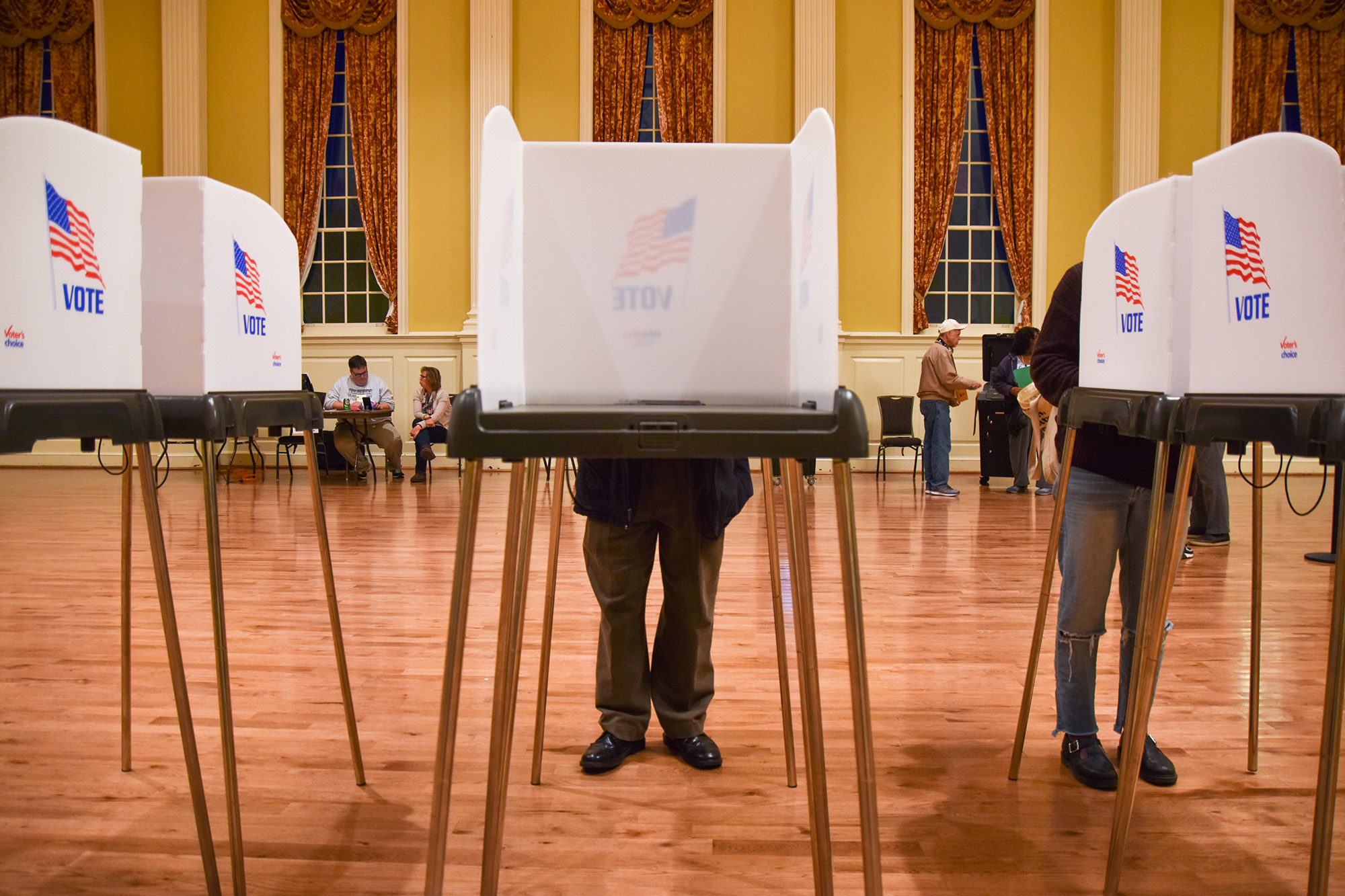Views expressed in opinion columns are the author’s own.
For much of the last four years, mainstream liberal politicians and their supporters have been preaching “resistance” and “revolution” to vote Trump and his allies out and replace them with Democrats. Now that Joe Biden has pretty much snagged the Democratic nomination, this rhetoric of causing true revolutionary change by voting out Trump has reached a fever pitch. Apparently, even “toxic” Bernie supporters must now do their duty to the #Resistance and vote blue to save America.
Sadly, no matter who becomes president, reducing the fight to overcome systemic inequality to voting out one asshole is no revolution. The entire American electoral system was built to install assholes at the expense of the American rabble. I’m not advocating for the elimination of the vote. I’m simply saying that our current electoral system is not very democratic, so why do so many people believe the ballot box is the primary way of effecting change? Two of our last five presidential elections were won by a candidate who lost the popular vote.
And, while the shaming of “privileged” non-voters is widespread, non-voters are overwhelmingly non-white, low-income, young and have a lower level of education. These people don’t forgo voting because they don’t care, but rather due to a variety of factors including voter suppression efforts, disillusionment with the electoral process, and the greater likelihood that members of these demographics cannot take off from work to vote. These groups are more likely to suffer the systemic inequalities politicians set out to amend, but they don’t vote because those same inequalities make it more difficult to cast their ballot.
For example, in Milwaukee County, Wisconsin, 81 percent of COVID-19 deaths were African Americans, who make up 26 percent of its population. In the city of Milwaukee, due to a wide range of economic, environmental and political factors, the lifespan of African Americans is already on average 14 years shorter than that of white residents. When the Wisconsin primaries were not delayed last week, many black voters in Milwaukee, including those who requested but didn’t receive absentee ballots, chose not risk their health to vote in the middle of a pandemic disproportionately killing them.
Voting alone won’t solve systemic inequalities, and relying on voting as the primary vehicle of social change can further burden the marginalized people that voting is supposed to empower. As the great activist writer Audre Lorde once wrote, “The master’s tools will never dismantle the master’s house.”
Additionally, investing millions of dollars, hours and people into presidential campaigns diverts those resources from aiding the communities that need them most. There’s something comically infuriating about 29 Democrats viciously competing to prove they’re the “wokest” candidate to beat Trump, when many could have done more good for the people they claimed to advocate for by investing failed campaign money in community organizing efforts.
Local efforts, such as all the mutual aid networks popping up in the wake of COVID-19, are infinitely better at consistently meeting the needs of their community members than presidential candidates. And the best part about supporting community organizing efforts is that we — unlike most politicians — never stop working for each other. If organizing locally during COVID-19 has taught me anything, it’s that we not only have the power to meet each other’s needs, but we also have the power to influence people across the nation in calling for policies and fundraising. It’s grassroots movements pushing rent freezes and raising money for those facing eviction. This kind of support goes further than one stimulus check dangled by elected officials to a portion of the population.
No matter when Trump leaves office, inequality will persist in the United States, and we can’t just vote it away. We should be suspicious of movements that come around every election cycle, co-opt activist language and claim to care about the marginalized. We should vote if it’s important to us, but also be aware that our power doesn’t as much lie in ballots cast every few years as it does in the choices we make every day to help those in need. The real revolution will never simply be voted in; it will be when we realize that we are worth more than the sum of our parts and collectively work to transcend the institutions that divide us.
Caterina Ieronimo is a sophomore government and politics major. She can be reached at ieronimocaterina@gmail.com.



